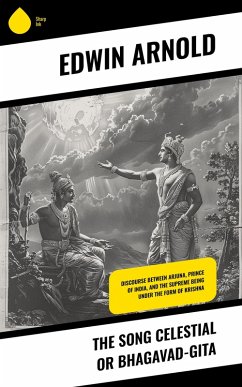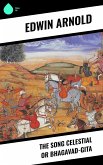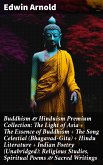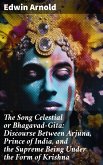The Bhagavad Gita ("Song of the Lord"), often referred to as simply the Gita, is a 700-verse Hindu scripture in Sanskrit that is part of the Hindu epic Mahabharata. The Gita is set in a narrative framework of a dialogue between Pandava prince Arjuna and his guide and charioteer Krishna. Facing the duty as a warrior to fight the Dharma Yudhha or righteous war between Pandavas and Kauravas, Arjuna is counselled by Krishna to "fulfill his Kshatriya (warrior) duty as a warrior and establishing Dharma." The Bhagavad Gita presents a synthesis of the Brahmanical concept of Dharma, theistic bhakti, the yogic ideals of moksha through jnana, bhakti, karma, and Raja Yoga and Samkhya philosophy. Sir Edwin Arnold (1832 - 1904) was an English poet and journalist. His chief work with this object is The Light of Asia, which was translated into various languages such as Hindi. "So have I read this wonderful and spirit-thrilling speech, By Krishna and Prince Arjun held, discoursing each with each; So have I writ its wisdom here,--its hidden mystery, For England; O our India! as dear to me as She!" - Edwin Arnold
Dieser Download kann aus rechtlichen Gründen nur mit Rechnungsadresse in A, B, BG, CY, CZ, D, DK, EW, E, FIN, F, GR, HR, H, IRL, I, LT, L, LR, M, NL, PL, P, R, S, SLO, SK ausgeliefert werden.





